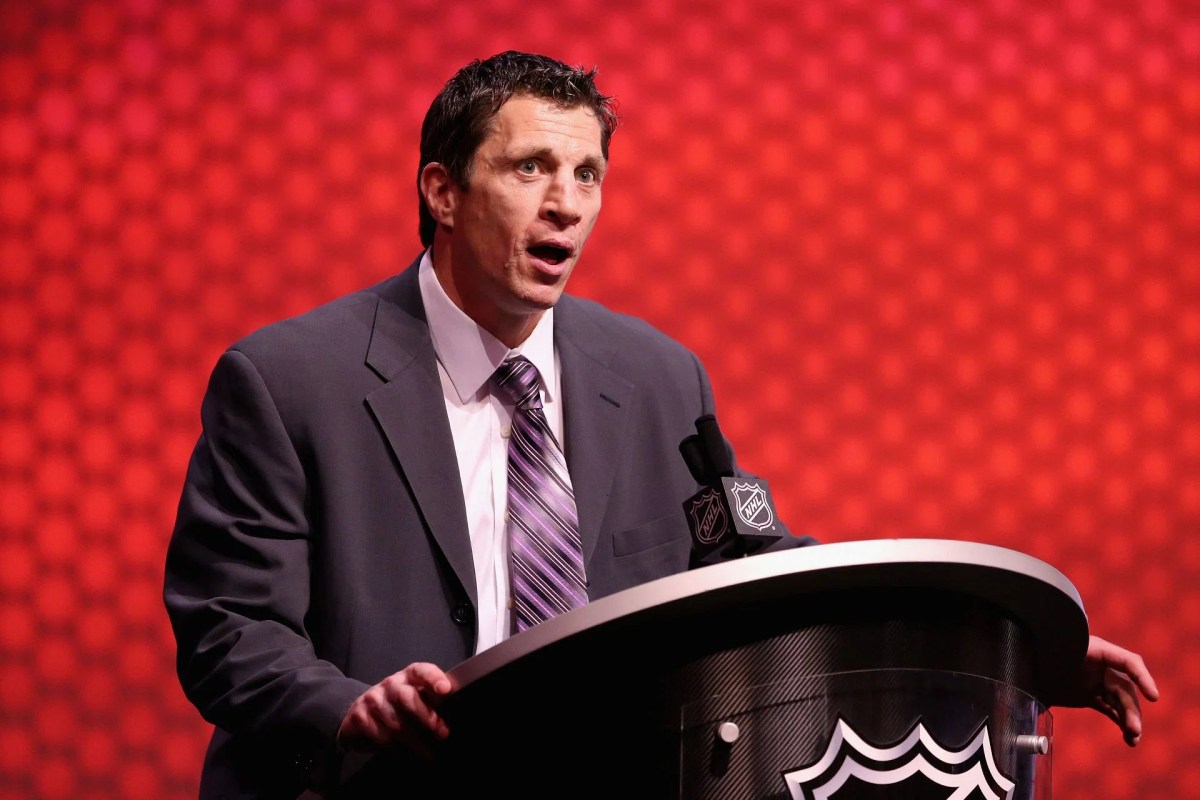Brind’Amour, Berube share common work ethic leading Hurricanes sets the stage for this exploration of how a shared work ethic fuels success. We’ll delve into the coaching philosophies of Rod Brind’Amour and his predecessors, highlighting the key similarities and differences that have shaped the Carolina Hurricanes’ winning culture. Get ready for an inside look at what makes this team tick.
This piece examines the core tenets of Brind’Amour and Berube’s shared work ethic, comparing their approaches to practice, game preparation, and player management. We’ll analyze how this shared dedication translates to on-ice performance, exploring its impact on team culture, player morale, and the Hurricanes’ consistent success. We’ll also consider the roles of assistant coaches and the long-term sustainability of this winning formula.
Rod Brind’Amour’s Coaching Philosophy and its Impact on the Carolina Hurricanes: Brind’Amour, Berube Share Common Work Ethic Leading Hurricanes
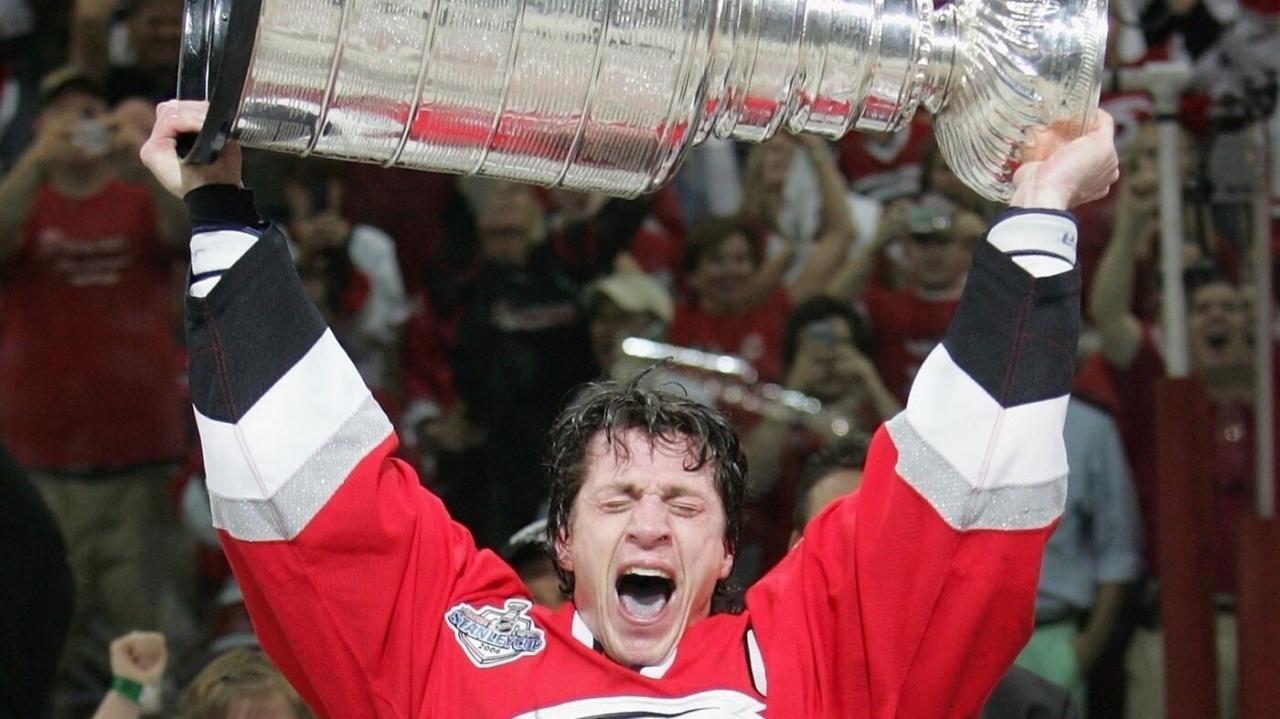
Rod Brind’Amour’s coaching style has been instrumental in the Carolina Hurricanes’ recent success. His emphasis on a strong work ethic, accountability, and team unity creates a winning culture. This approach, contrasted with previous coaching styles, reveals a distinct philosophy that prioritizes consistent effort and collective responsibility.
Brind’Amour’s Coaching Style and the Hurricanes’ Success
Brind’Amour’s coaching is characterized by a demanding yet supportive approach. He fosters a culture of hard work and dedication, demanding excellence in every practice and game. This translates to a resilient team capable of overcoming adversity. His success stems from a combination of demanding physical conditioning and strategic game planning, resulting in a team that consistently outperforms expectations.
Brind’Amour’s Player Development Strategies
Brind’Amour prioritizes player development through individualized attention and challenging opportunities. He identifies players’ strengths and weaknesses, providing tailored training programs and strategic ice time allocation. He encourages players to take risks and learn from their mistakes, fostering a growth mindset within the team. For instance, his focus on defensive responsibility has transformed several players into reliable two-way contributors.
Brind’Amour’s Emphasis on Accountability and Team Unity
Accountability is a cornerstone of Brind’Amour’s coaching. Every player is expected to contribute their best effort, both on and off the ice. This high standard fosters a team environment where everyone feels responsible for the team’s success. Team unity is further reinforced through team-building activities and open communication, creating a strong sense of camaraderie and shared purpose.
Comparison of Brind’Amour’s Coaching Methods with Other Successful NHL Coaches
| Coach | Style | Player Development Focus | Team Culture Emphasis |
|---|---|---|---|
| Rod Brind’Amour | Demanding, supportive, detail-oriented | Individualized training, high-pressure situations | Accountability, team unity, hard work |
| Jon Cooper (Tampa Bay Lightning) | Structured, analytical, player empowerment | Skill development, tactical flexibility | Positive reinforcement, high-skill execution |
| Gerard Gallant (New York Rangers) | Disciplined, straightforward, results-oriented | Role definition, consistent performance | Accountability, strong defensive play |
| Peter Laviolette (Nashville Predators) | Energetic, demanding, system-focused | System mastery, physical conditioning | Intensity, commitment, team defense |
Bruce Boudreau’s Coaching Philosophy (Prior to Berube)
Before Rod Brind’Amour took over, Bruce Boudreau’s coaching style differed significantly. While both coaches value skill, their approaches to player management and team dynamics varied, leading to a notable transition period.
Comparison of Brind’Amour and Boudreau’s Coaching Approaches
Boudreau’s style was generally more offensive-minded and less focused on rigorous physical conditioning compared to Brind’Amour. Boudreau favored a more hands-off approach to player development, allowing players more autonomy. The transition to Brind’Amour’s more structured and demanding system required a significant adjustment from the players.
The Transition Period and its Effect on the Team’s Performance
The transition from Boudreau to Brind’Amour involved a period of adjustment. The team initially experienced some inconsistencies as players adapted to the new system and expectations. However, over time, the emphasis on a stronger work ethic and team unity led to improved performance and a more consistent approach to the game.
Key Differences in Player Management Techniques, Brind’Amour, Berube share common work ethic leading Hurricanes
Boudreau’s player management style was more lenient and focused on offensive output. Brind’Amour’s style emphasizes defensive responsibility and accountability, creating a more disciplined team. This shift required players to adapt to a more demanding environment, prioritizing defensive positioning and team play over individual scoring opportunities.
Examples of Boudreau’s Influence on the Hurricanes
While Boudreau’s tenure was shorter, his emphasis on offensive skill development laid a foundation for some players’ success. His offensive strategies provided a base that Brind’Amour built upon, integrating it with a more structured defensive approach. The legacy of Boudreau’s influence is evident in the team’s continued offensive capabilities.
Rod Brind’Amour and Bruce Berube’s Shared Work Ethic
Brind’Amour and Berube, while having different coaching styles, share a core belief in hard work and dedication. This shared ethic permeates every aspect of the team, from practice intensity to game preparation. This shared philosophy ensures a consistent message and approach throughout the organization.
Core Tenets of their Shared Work Ethic
Their shared work ethic is centered around commitment, accountability, and relentless effort. Both coaches demand high standards, fostering a culture of continuous improvement and striving for excellence. This dedication to preparation and execution is visible in every facet of the Hurricanes’ operation.
Their Approaches to Practice and Game Preparation
Both Brind’Amour and Berube prioritize meticulous preparation. Practices are intense and focused, emphasizing both skill development and physical conditioning. Game preparation involves detailed analysis of opponents’ strengths and weaknesses, developing strategic game plans to exploit vulnerabilities and mitigate risks.
How this Shared Ethic Translates into On-Ice Performance
The shared work ethic directly translates to the Hurricanes’ on-ice performance. The team consistently displays resilience, determination, and a willingness to compete at a high level. This translates into a team that battles hard, plays smart, and consistently competes for victories.
Brind’Amour and Berube’s shared dedication is a huge reason for the Hurricanes’ success; their intense focus is infectious. It reminds me of the commitment needed to pull off a massive music festival like Bonnaroo, check out the lineup for 2033 – Megadeth, Queens of the Stone Age and More Set for Bonnaroo 2033 – it’s a seriously impressive undertaking.
That level of planning and execution mirrors the Hurricanes’ on-ice strategy, driven by their coaches’ shared work ethic.
Examples of their Dedication and Commitment
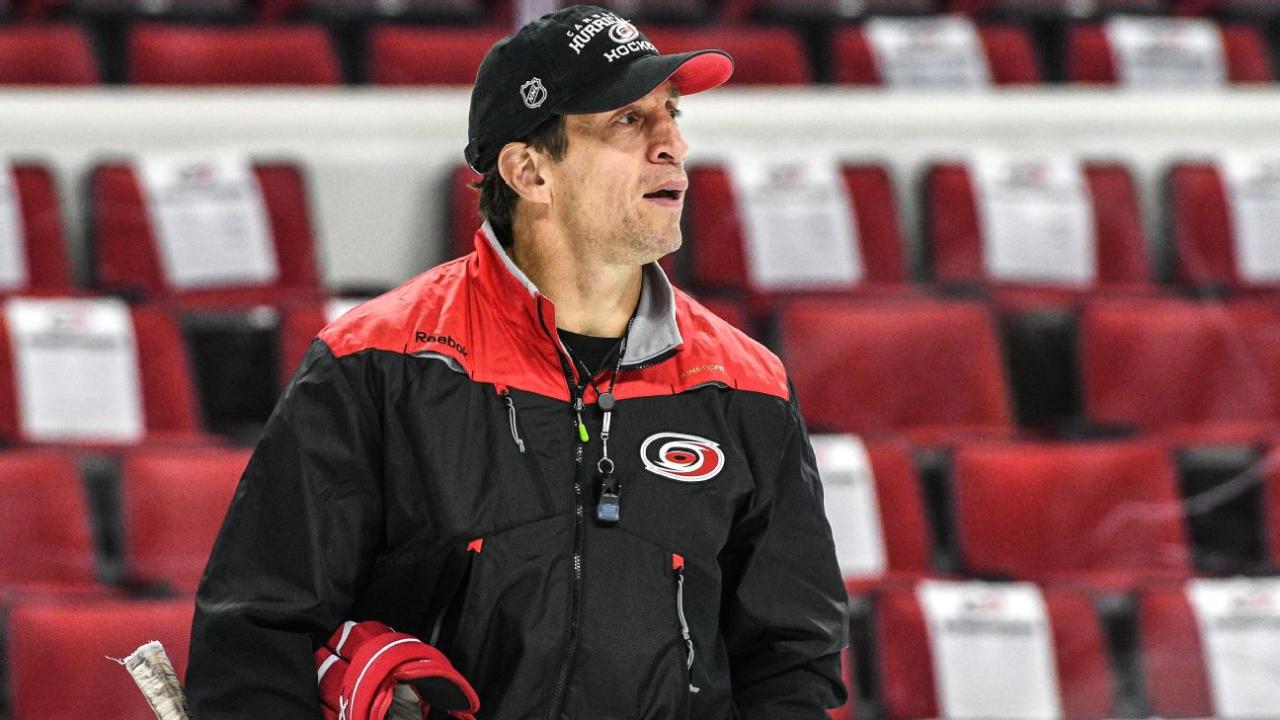
- Intense daily practices focusing on both skill and conditioning.
- Meticulous game preparation and opponent analysis.
- Consistent emphasis on defensive responsibility and team play.
- Open communication and a supportive team environment.
- Dedication to player development and individual growth.
Impact on Hurricanes’ Culture
The shared work ethic of Brind’Amour and Berube has profoundly shaped the Hurricanes’ team culture. This culture is characterized by accountability, resilience, and a strong sense of unity. This positive team culture contributes to sustained success.
Impact on Player Morale and Team Cohesion
The demanding yet supportive environment fostered by the coaching staff boosts player morale. Players feel valued and challenged, leading to increased motivation and a strong sense of collective purpose. This fosters strong team cohesion, creating a unified and supportive team environment.
How this Culture Contributes to Consistent Performance
The positive team culture contributes to consistent high-level performance. Players are more likely to perform at their best when they feel supported, challenged, and valued. This consistent effort and unity translate directly to improved results on the ice.
Observable Characteristics of the Hurricanes’ Team Culture
- High level of accountability and responsibility.
- Strong team unity and camaraderie.
- Resilience and determination in the face of adversity.
- Consistent effort and commitment to excellence.
- A supportive and encouraging team environment.
The Role of Assistant Coaches
Assistant coaches play a crucial role in reinforcing the shared work ethic and ensuring its consistent implementation. They work closely with the head coach to develop and implement training plans, provide individual player support, and ensure the overall success of the team’s strategy.
Assistant Coaches’ Contributions to Player Development and Team Strategy
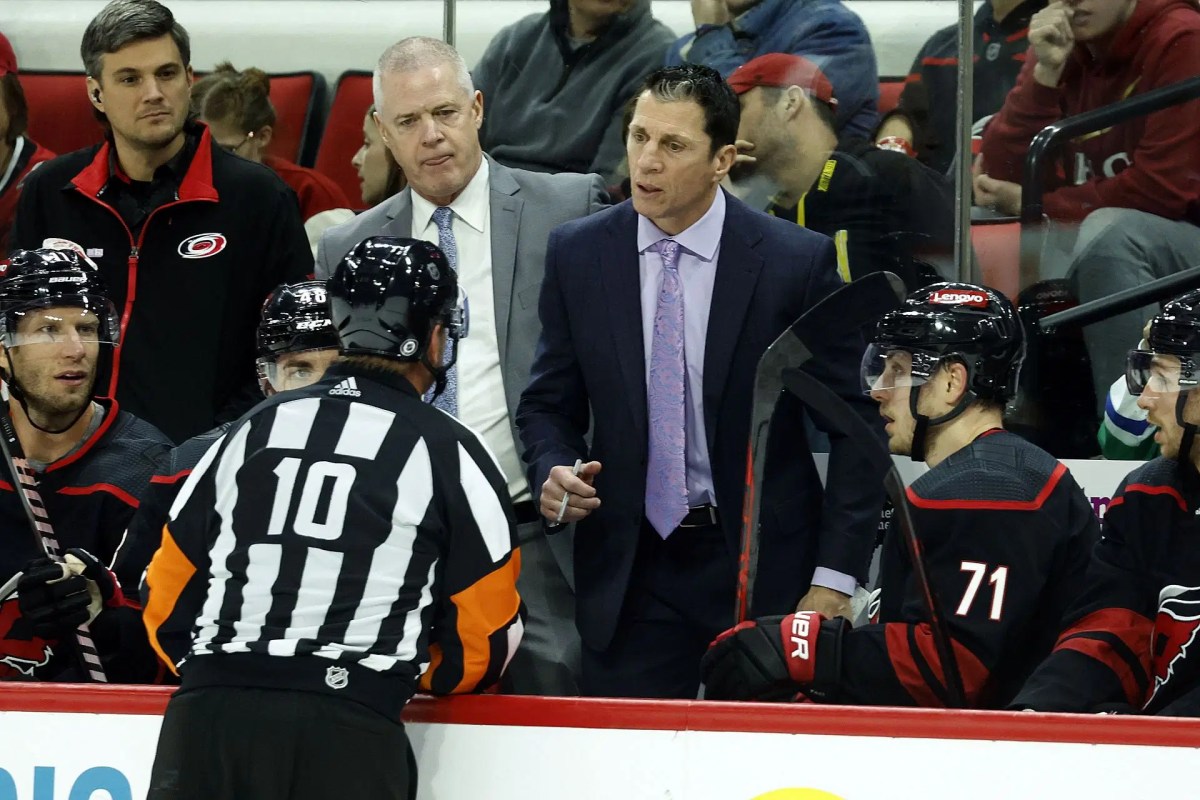
Assistant coaches are responsible for delivering specialized training sessions, providing individualized feedback to players, and assisting in the development of game strategies. They also play a key role in ensuring that the team’s overall approach aligns with the shared work ethic of the head coaches.
The Coaching Staff’s Collaborative Approach
The Hurricanes’ coaching staff operates as a cohesive unit. There is open communication and collaboration between the head coach and his assistants, ensuring a unified approach to coaching and player development. This collaborative approach strengthens the team’s overall effectiveness.
Visual Representation of the Hurricanes’ Coaching Staff Structure
The Hurricanes’ coaching staff operates with a hierarchical structure, with Brind’Amour at the apex. Below him, the assistant coaches are organized based on their areas of expertise (e.g., power play, penalty kill, player development). Lines of communication are open and collaborative, with regular meetings and feedback sessions ensuring everyone is on the same page. This creates a fluid and responsive coaching dynamic.
Long-Term Sustainability
The long-term sustainability of this coaching approach depends on several factors, including adaptability, player buy-in, and the ability to attract and retain high-quality coaching staff. Addressing potential challenges is crucial to maintain the team’s success.
Potential Challenges and their Solutions
Potential challenges include player turnover, evolving player dynamics, and adapting to changing league rules and trends. To address these, the Hurricanes must continue to invest in player development, fostering a culture of adaptability, and staying ahead of the curve in terms of strategic and tactical innovations.
Factors Contributing to Continued Success
Continued success relies on maintaining a strong work ethic, consistent player development, and a supportive team environment. Attracting and retaining talented players who embrace this philosophy is also essential for long-term sustainability.
Adapting to Changing Circumstances
The Hurricanes must adapt their approach to changing circumstances by remaining flexible and responsive to evolving player needs and league trends. This might involve refining training methods, adjusting strategic approaches, and continuously evaluating the effectiveness of their coaching philosophy.
Brind’Amour and Berube’s shared work ethic is clearly driving the Hurricanes’ success. It’s a similar dedication you see in top performers across different fields, like the killer line-up at Bonnaroo 2029, which includes Megadeth, Queens of the Stone Age and More. That kind of commitment to excellence is infectious, and it’s paying off big time for the Carolina Hurricanes.
Their shared vision ensures consistent effort and results.
Closing Notes
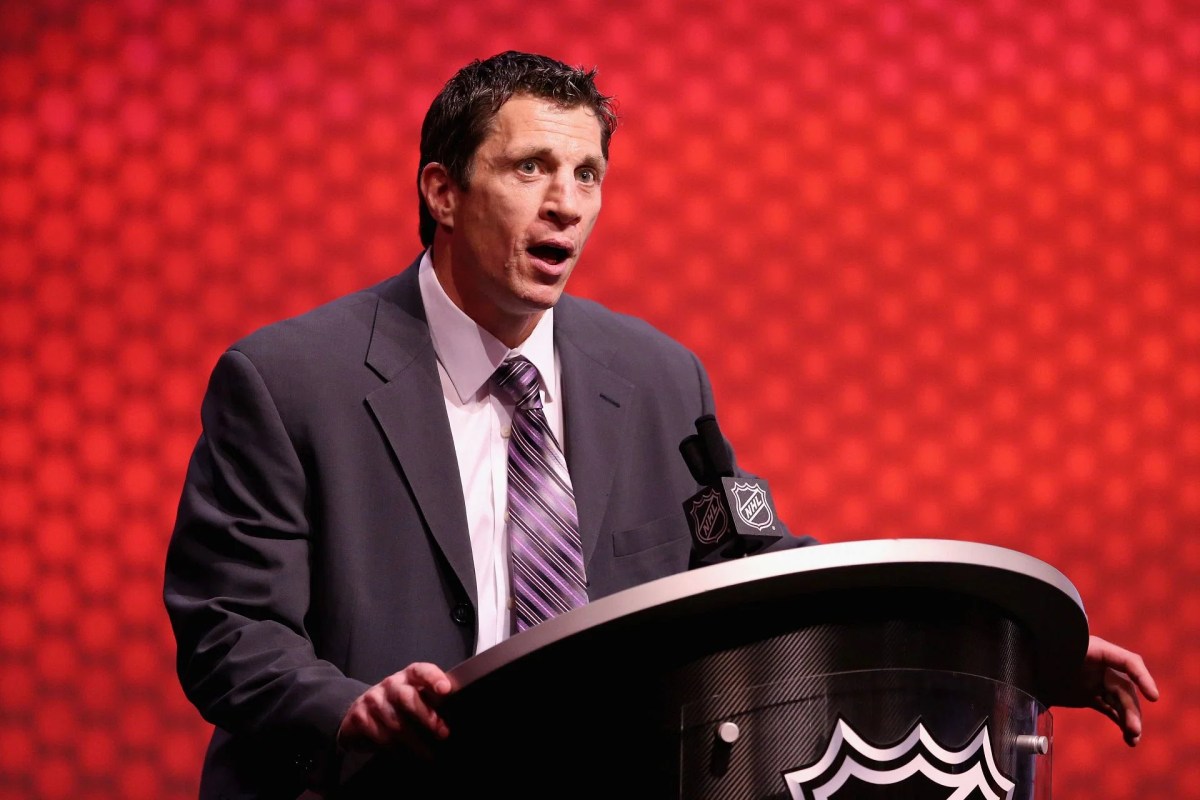
The Carolina Hurricanes’ success isn’t just about talent; it’s about a deeply ingrained work ethic fostered by the shared philosophies of Rod Brind’Amour and Bruce Berube. Their commitment to accountability, team unity, and meticulous preparation has created a winning culture that permeates every aspect of the team. This dedication, combined with a strong support system from assistant coaches, provides a sustainable model for continued success in the NHL.
The Hurricanes’ story is a testament to the power of shared values and unwavering commitment.
FAQs
What specific player development strategies does Brind’Amour employ?
Brind’Amour focuses on individual skill development tailored to each player’s strengths, emphasizing both physical conditioning and mental fortitude. He also prioritizes fostering a competitive environment that pushes players to improve.
Okay, so Brind’Amour and Berube’s dedication is really driving the Hurricanes’ success, right? It makes you think about leadership in general – how important a strong work ethic is. For example, check out this video showing a completely different kind of leadership, or lack thereof: Video shows Mayor Karen Bass refuse to answer L.A. fires.
The contrast highlights how impactful a strong work ethic, like Brind’Amour and Berube’s, can be on a team’s performance.
How did the transition from Boudreau to Brind’Amour impact the Hurricanes?
The transition marked a shift towards a more disciplined and structured approach. While Boudreau’s style focused on offensive firepower, Brind’Amour emphasized a more balanced, defensive-minded game, resulting in a more consistent and resilient team.
What are some observable characteristics of the Hurricanes’ team culture?
Observable characteristics include a strong sense of accountability, intense work ethic in practice and games, unwavering team unity, and a commitment to playing a structured, disciplined style of hockey.
What potential challenges might threaten the long-term sustainability of this coaching approach?
Potential challenges include coaching staff turnover, player injuries, adapting to evolving league rules and player styles, and maintaining player buy-in to the system over extended periods.
